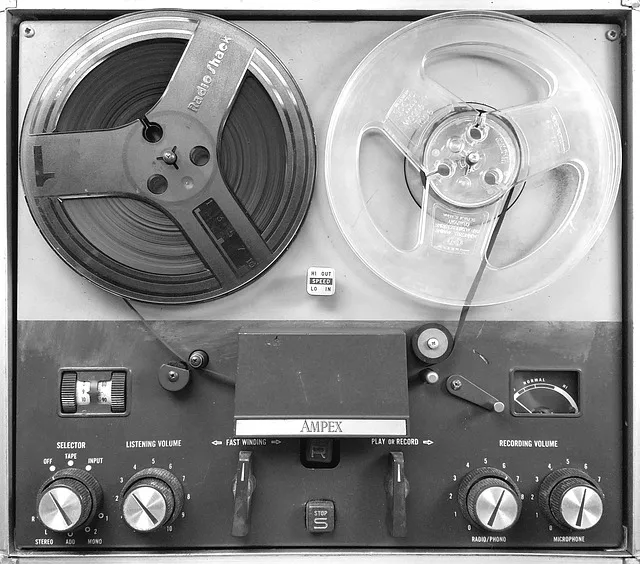DISCLAIMER: Parlor City Sound earns a commission (at no cost to you) if you click a link to Amazon and buy something while visiting this page. This is only applicable to Amazon links—we don't earn a sales commission from anyone else. Read our advertising disclosure & FAQ to learn more about our strict policies on affiliate marketing.
At some point in any musician’s career, you’ll find yourself wondering if your act could benefit from having a music manager (band manager). And it’s an important question to ask, too—having a good music manager can help your ambitious act grow by leaps and bounds, though not every music act really needs a manager, either. So what does a music manager do exactly? Does your band need music management, or is this something you can stick a pin in for now?
So let’s take a look at band managers. What they do, why they’re important, why (and when) your music act needs to find one, and the skills you need to keep an eye out for when potentially hiring one. And we’ll get into the different types of band managers too, like tour managers, business managers, etc. Let’s get cracking!
What does a music manager do specifically?
Being a musician in a serious, professionally-oriented band is hard work. If you’re hoping to make music a full-time, paying gig, you’ll need a serious work ethic. The music itself makes up just a small fraction of the total workload a musician is taking on. Sure, bands obviously need to write, rehearse, and perform their music. But that music doesn’t magically promote itself. You’re not going to get people banging on the door of your rehearsal space offering you gigs.
Music managers take care of the business stuff. They’ll spend their time promoting the act, booking gigs, balancing the books, negotiating better rates, and more. So having music management working on your side can take a lot off your plate.
A music manager or band manager takes on a lot of those non-musical tasks on behalf of the act. They handle business management, music promotion, bookings, human resources, and various elements of tour management. And if your music act is interested in pursuing an indie or mainstream record deal or a publishing deal, your manager will likely play an instrumental role in making that happen, too.
As your music act grows, you may end up with more than one type of music manager. At the upper echelons of the industry, acts will have general, business, and tour managers. They’ll have a small marketing team managing their website and social media accounts. But you shouldn’t worry about all that just yet. For now, at the local and regional levels, a general manager is enough to get the ball rolling.
The specific responsibilities of a music manager or band manager
Let’s list some core examples of what a music manager is responsible for, especially early on in a music act’s career. Your music manager’s responsibilities might include some of the following … or maybe even everything listed here. And there are other tasks a band manager might take on as well.
- Book gigs for the band
- Promote gigs, releases, tours, and the band in general
- Negotiate contracts and compensation on behalf of the band (and fight for that compensation if need be!)
- Manage the band’s scheduling and calendar and ensure it’s as full as the band wants it to be, with gigs, promotional events, meet and greets, recording sessions, band meetings, interviews, etc.
- Handle (or at least oversee) band ledgers and financial reporting, and take care of general business management tasks
- Ensure the band’s electronic press kit, social media accounts, and band website are consistently and frequently updated
- Serve as the band’s primary ambassador, constantly promoting the act and singing its praises
- Oversee the signing of band member agreements and make sure everyone is upholding those agreements
- Various human resources tasks: help find new musicians, settle disputes, and even fire a bandmate if necessary
- Help organize tours, including (but not limited to) booking and promoting gigs, plotting travel routes, handling hotel accommodations, scheduling stops, etc.
- Manage the band’s intellectual property and ensure the band is getting compensated justly for their work. This includes securing sync deals/ licensing agreements, combating plagiarism, securing publishing contracts, ensuring royalties and advances are flowing, and more
Types of band managers
We’ve mostly been describing general music managers here. But there are other types of band managers, too. If your band grows a larger audience and reaches those higher tiers of the music industry, you may find yourself needing to bring on:
- Tour managers, who manage tours specifically. They’re usually responsible for managing the road crew, and ensuring equipment is kept in good order. They also handle travel accommodations, booking hotels and managing travel budgets
- Business managers take on a lot of business management aspects, like accounting, financial reporting, budgeting, investing, etc.
- Marketing managers also take over some of the tasks of a general manager, specifically related to the promotion of the band and fan outreach. They’ll manage the website and social media accounts, develop marketing campaigns, and more
How much does a music manager get paid?

Band managers do a lot of work. But a gifted band manager should be ready and able to handle as much of that as possible. That’s why their compensation tends to be pretty high.
The industry standard rate for a band manager is 20 percent of the band’s revenue. That probably sounds like a lot, but just think about everything they’re doing for your act. They’re securing your gigs, promoting your music, and maximizing your profitability. Talented music managers should definitely earn their keep, and increase band revenues enough to warrant their pay. If a band manager isn’t delivering and earning their keep, consider replacing them.
Early on in a band’s career, it’s common practice to have someone close to the band take on the title of band manager. But this isn’t just for show—they need to take on as much of these responsibilities as they can. At the very least, they should be helping book gigs, negotiating better gig pay, keeping the books, and updating the band’s online presence (the aforementioned EPK, band website, and social media accounts).
And yes, it’s perfectly okay to pay a less experienced band manager a smaller percentage until they can prove they deserve a bigger cut of the band’s revenues. When they consistently show they can handle the job and their work is having a positive contribution, you can (and should) up their percentage.
When should your act start looking for music management?
Not every music act really needs music management, especially early on. If the band is treated more as a hobby and there isn’t a lot of ambition to reach that next level, music management is entirely unnecessary. And if your band is taking things more seriously and really wants to make it big, it’s a good idea to get somewhat established before seeking out a manager.
There’s really no litmus test for when a music act is ready for a band manager. But here are a few questions to ask yourself before seeking out music management. How much could a band manager help with these tasks?
- Is the band struggling to find creative time? Is your schedule overflowing with non-musical work? Do you feel like you’d rather be writing and rehearsing songs rather than updating websites and crunching numbers in a spreadsheet?
- Are there certain areas where the band is coming up short? Are you struggling to book gigs, reach potential fans, manage your online presence, etc.?
- Is the band experiencing scheduling conflicts, or having a hard time keeping up with correspondence?
- How is the band’s financial situation going? Are you suddenly handling more money, or did you recently notice a dip in revenues? Have there been issues with accurately keeping up with financial ledgers and reporting?
- Is your band ready to start touring? To record and release an album? To secure a record deal?
The qualities to look for in a band manager (especially early on)
There’s a very high probability that your band’s first manager won’t have much experience in music management—or any at all, really. But while having a bunch of music manager experience on their CV certainly helps, it’s not all that necessary, especially when your band is smaller and just starting to grow. Here are a few key qualities to keep an eye out for:
- Business acumen. Maybe they’ve worked as a different type of manager, or they went to business management or even music management school. They can balance a spreadsheet, manage a budget, and keep their cool during critical negotiations
- A people-person. Great band managers tend to be extroverts. They enjoy talking with people, they’re comfortable striking up conversations with strangers, and they’re well-spoken too; you don’t want a band manager rambling through a meeting using lots of slang, frfr no cap.
- They can understand legal mumbo-jumbo. A music manager should be able to navigate all manner of contracts. They should understand what intellectual property is and have a working understanding of copyright law, or at least be ready and able to learn. They don’t need a law degree, but knowing how to read a contract is an absolute must
- They’re tech-savvy. Early on, your band manager will be managing social media posts, updating your website, and more. They don’t need to be a coder or anything, but they certainly need to understand the basics, and a little SEO knowledge goes a long way, too
- They’re ready and eager to learn. Rarely, if ever, will you come across someone who can do everything listed here. But a great band manager should be willing to study their butts off and learn whatever they don’t understand, as quickly and as thoroughly as they can
No matter who you turn to as your music manager, get it all in writing!

Whether your new band manager is a friend you’ve known for years, or you met some mad scientist who just reincarnated Peter Grant or Brian Epstein, there’s one thing that’s universally true for every music manager you’ll ever work with: you need to have a music management contract.
Signing a band management contract is never open for debate. And any manager who insists you don’t need one is someone your band would be wise to steer clear of. This is also true if there’s anything in the contract you don’t understand or sounds fishy to you.
A band management contract is a legal agreement between the band manager and the band itself. It establishes the band manager’s responsibilities, clearly defines everyone’s liabilities, and outlines precisely what percentages of specific revenues the band manager is entitled to. It needs to also have exit clauses, too. Clearly defined conditions which, if met, mean the band can fire the band manager or the band manager can quit the band with immediate effect.
The band management contract needs to be as specific and detailed as possible, and if you can afford it, it’s not a bad idea to have an actual professional lawyer look it over before you sign it, and explain what each caveat of the agreement stipulates. Legal jargon gets confusing and even goofy. You don’t want to sign anything, ever, that you don’t fully and completely understand.
With an inexperienced band manager, consider a one-year contract at a smaller percentage. If they earn their keep in one year at 10 percent, it can go up to 15 or even 20 percent in year two.
A gifted music manager can make a world of difference for your music act
Hiring a band manager can have a huge impact on your band’s future. Great music management can propel you to entirely new heights of exposure and revenue. A passable band manager can get your band moving in the right direction and help you grow locally and regionally. And a bad manager? Well … try not to hire a bad music manager if you can help it.
For those of you reading this who are local to the Parlor City, finding a talented band manager in the Binghamton music scene can be a bit of a challenge, but they’re definitely out there. Consider bringing on business students or recent graduates from Binghamton University or SUNY Broome. Put out advertisements and job listings. You’ll get a respectable list of qualified candidates a lot more quickly than you might think.
These same rules apply anywhere, really. Does your area have a business school? Do you have friends with relative experience? Some markets even have professional music management companies. Put some feelers out there and you’re bound to find someone worth their salt.
We hope this guide helps you find a great music manager that can help your band reach exciting new heights. And hey, check out some of our other entirely free guides too!




